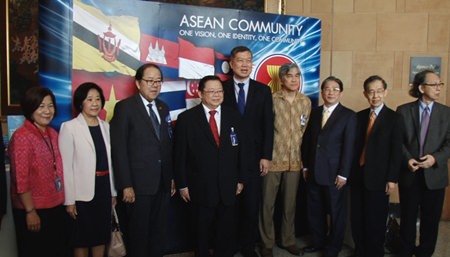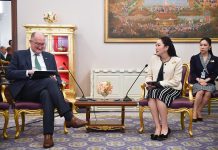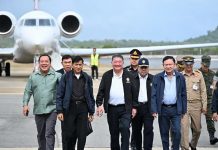BANGKOK – The Ministry of Foreign Affairs held a seminar on the Future of the ASEAN Community: Beyond 2015 and Towards 2025 and launched a Pathfinding book on “Positioning the ASEAN Community in an Emerging Asia: Thai Perspective” as well as introduced the concept of “2025: Forging Ahead Together.”
Mr. Jakkrit Srivali, Director-General of the Department of ASEAN Affairs, welcomed all participants and keynote speakers, including Mr. Kavi Chongkittavorn, Dr. Suthad Setboonsarng, Dr. Termsak Chalerm Palanupap and Mr. Apichai Sunchindah. He said the Ministry of Foreign Affairs has held a number of activities including this event to welcome the establishment of the ASEAN Economic Community.

Mr. Kavi Chongkittavorn, a former special assistant to the ASEAN Secretary-General, pointed out that ASEAN is an unbreakable regional organization which is not too strong and not too weak. In complex and changing environment today, Thailand should deal with all major powers, including the United States, China and Russia, he said. For that reason, Thailand is bound to adopt policies alongside the bloc’s visions which will be pivotal to the development of the country and ASEAN community.
Dr. Suthad Setboonsarng, a Former Deputy ASEAN Secretary-General, said the ASEAN community is a platform for moving forward since 25% of ASEAN GDP involves internal trade so that ASEAN should speak in one voice and not compete against each other but work together. Besides, the community was suggested to act less as a national entity and more as a regional bloc in favor of shared development and achievements.
Apart from political, security and economic affairs Mr. Apichai Sunchindah insisted that the ASEAN community push forward joint actions and emphasize on public awareness since the bloc is a people-based organization. ASEAN needs to adopt a common resolution to combat non-traditional threats such as drugs, human trafficking and climate change.
All the keynote speakers agreed to the non-interference principles which need not change but are yet to be made more liberal. The most important point is to turn regional interests into a regional policy.




